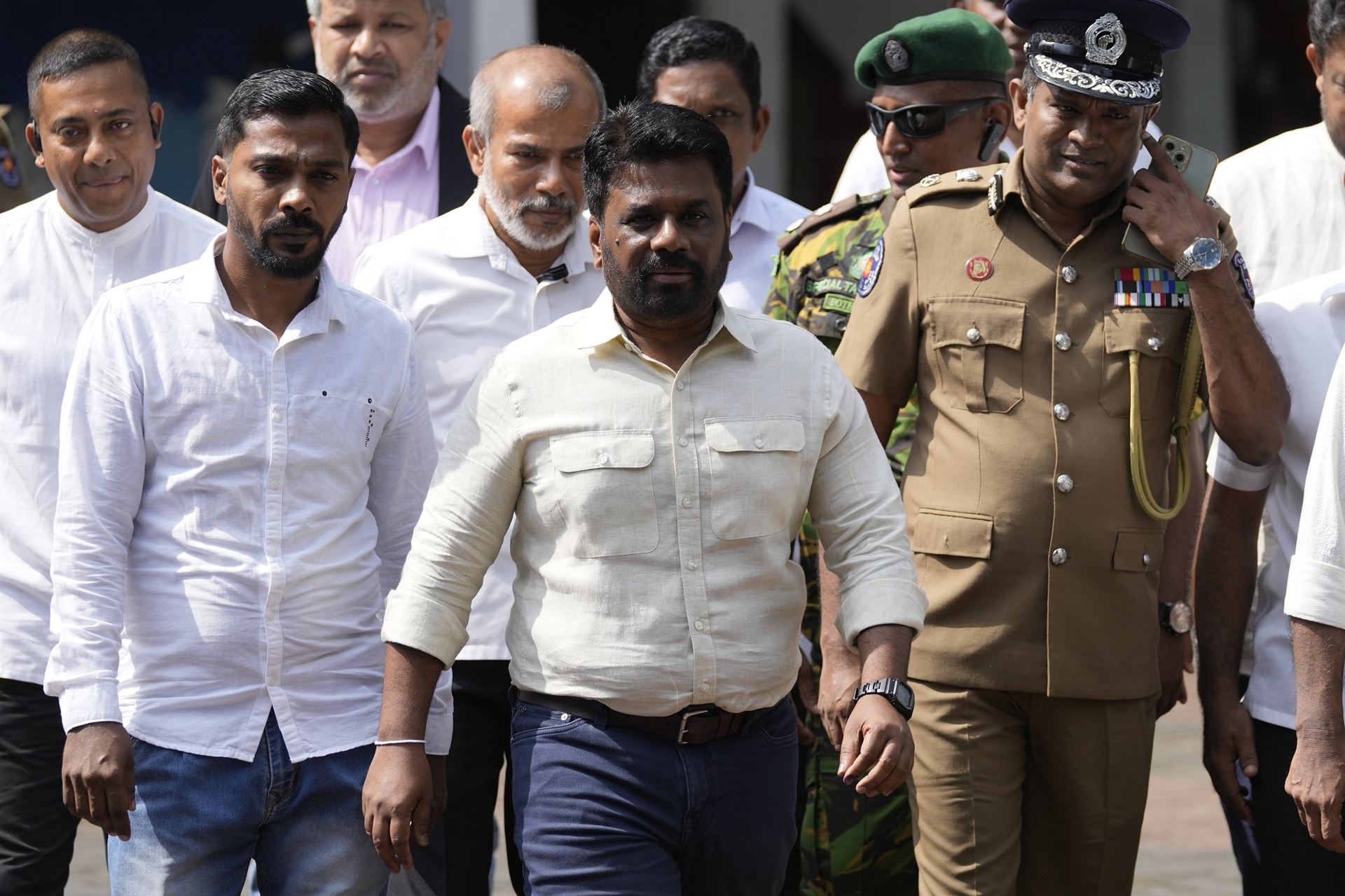
Sri Lankan President Anura Kumara Dissanayake's party secured a majority in parliament in the snap general election on Nov 14, according to the country's Election Commission (EC) on Nov 15.
After the votes were counted, statistics from the EC showed that Dissanayake's National People's Power (NPP) party won 141 seats and secured 6,863,186 votes.
Former opposition leader Sajith Premadasa's Samagi Jana Balawegaya (SJB) alliance followed by winning 35 seats and 1,968,716 votes.
Victory will enable Dissanayake to deliver on his promises to fight corruption, gain stability in the South Asian island country, and further lift it from its worst-ever economic crisis.
According to Sri Lankan parliamentary regulations, the ruling party needs a parliamentary majority to pass laws and a two-thirds majority to bring constitutional amendments.
ALSO READ: Sri Lankan president's coalition wins big majority in general election
Dissanayake’s NPP won nearly 62 percent of the vote in the Nov 14 election. This showed a clear hike from the 42 percent he gained in the country’s presidential election in September.
Dissanayake won the presidential election on Sept 21 by obtaining approximately 5.7 million votes and was later sworn in as the ninth executive president of Sri Lanka.
He then dissolved parliament on Sept 25 to make way for a general election, which he called for Nov 14.
The newly elected parliament is scheduled to convene on Nov 21.
"We see this as a critical turning point for Sri Lanka. We expect a mandate to form a strong parliament, and we are confident the people will give us this mandate," Dissanayake told the press after casting his vote in Sri Lanka’s capital Colombo on Nov 14.
"There is a change in Sri Lanka's political culture that started in September, which must continue," he said.
READ MORE: Voting starts in Sri Lankan parliamentary election
Ahilan Kadirgamar, a political economist and senior lecturer at the University of Jaffna in Sri Lanka told China Daily that, “It’s a historic change. For the first time in our history, the government has got such a large majority under the proportional representation system… and it's significant because even in the minority-dominated northern province in the electoral districts, they were the clear winner in the elections.”
According to him, the NPP have a huge mandate, but there're high expectations among the people, and in particular, they have to address the economic issues, because Sri Lanka is going through its worst economic crisis since independence. “There's also expectations that they should change the constitution and as well as address the economic issues,” he noted, adding that it is to be seen that
they will have the political will to be able to achieve all that.
“But a big constraint is the IMF program and the austerity measures coming under the IMF program, so they have to figure out a way to deal with the IMF and provide relief to the people,” he added.
Of the Sri Lankan parliament’s 225 seats, 196 are elected from 22 multi-member electoral districts. The remaining 29 seats are elected from National Lists allocated to the parties (and independent groups) in proportion to their share of the national vote.
The EC is yet to declare how the 29 National List seats are divided, but many expect the NPP to secure the key two-thirds majority.
READ MORE: Postal votes cast in Sri Lanka polls
“The president has a huge mandate now to carry through the reforms but also huge expectations from the people,” said Bhavani Fonseka, a researcher at the Centre for Policy Alternatives, a Colombo-based think tank, as quoted by Reuters.
"People voted to get rid of corruption and a corrupt system," IT worker Chanaka Rajapaksha, who voted for the NPP, told AFP on Friday.
The country last held its parliamentary election in 2020. According to the EC, steps will be taken to hold the local government elections soon after the conclusion of this parliamentary election.
The decision was taken in compliance with a Supreme Court order issued in August 2024 that directed the commission to hold local government elections, which were postponed in 2023 due to a lack of funds.
The president appointed a new cabinet of ministers on Sept 24, with Prime Minister Harini Amarasuriya, lawmaker Vijitha Herath, and Dissanayake himself taking on cabinet portfolios.
In his inaugural address, Dissanayake said his administration will face many challenges and that his main task is to create a new political culture.
The president said that he will work with experts and make optimum decisions for the country.
Xinhua contributed to the story.


